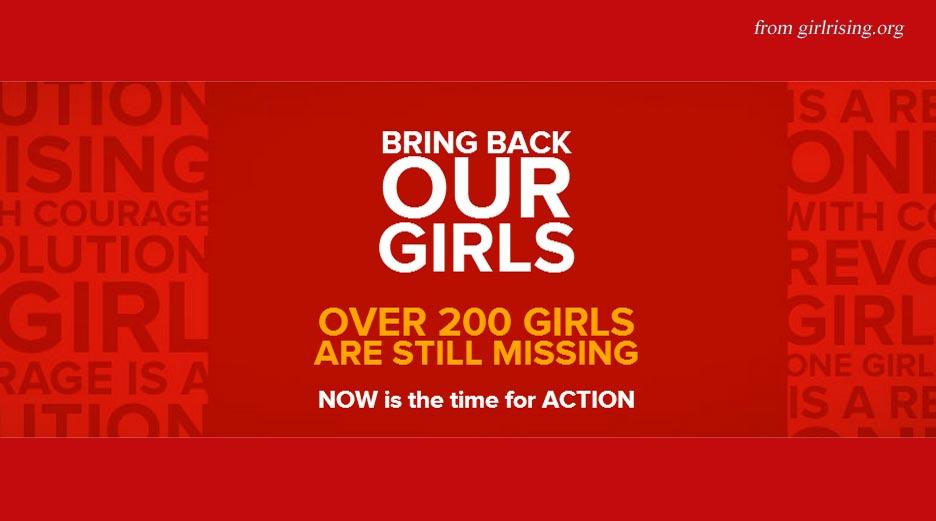
by Savannah Lynn Johnson
With the momentum surrounding the issue of girls’ rights to education continuing to build, the tragedy in Nigeria expresses the ongoing friction within communities around the world. It’s been a year and a half since Malala Yousafzai survived her attack, and the current crisis is another pushback by terrorist groups against girls’ right to education. Not one, not a handful, but 276 girls ages 16 to 18 were abducted from their boarding school in Nigeria during the middle of the night. Why is it imperative the world responds to this act of terror? Not only do we still need to bring home more than 200 girls who are still missing, but the global community also needs to send a message to terrorist groups like Boko Haram—the Islamic extremist group responsible for the abduction.
The immediate concern is that the Boko Haram leader, Abubakar Shekau, is threatening to sell the girls who have been abducted. These girls are the champions of their communities with hopes of being lawyers, doctors, and teachers. Now they are in the position to be sold as wives, slaves, or placed in the hands of sexual traffickers—everything they were being saved from by attending school.
For girls’ education advocates, a fundamental concern extends beyond the current crisis to the fate of girls seeking education everywhere. There are plenty of barriers keeping girls out of the classroom—fear should not be one of them. This abduction plants fear in girls who are in school or hope to go to school one day. It plants fear in parents who are saving money to invest in their daughters’ education. When girls are provided an opportunity to go school, they should feel safe. How the world responds and resolves this issue will have deep implications for the future of girls’ education and the safety of schoolgirls. For the world to reap the benefits of girls having equal access to education, girls’ safety at school has to be ensured.
It is encouraging to see President Obama announce that the United States will respond with support, but should support by the United States and other countries occurred earlier? It has been over three weeks and little global action has taken place up until now. It is interesting to question what sort of global attention and support a similar situation would receive if it occurred elsewhere in the world. It is certainly hard to imagine something like this happening in the United States, and maybe that makes this crisis seem out of touch. But tear down your political and geographical barriers and imagine your sister or your daughter being stripped of her freedom, her education, and her potential. Imagine the frustration of feeling as if the global community was not hearing your cries or taking note of this issue.
The people of Nigeria were desperate for these girls to be returned and for the world to respond. They began to rally their voices on social media, and now #bringbackourgirls is popping up everywhere online and in protests. This is not Nigeria’s issue. This is the world’s issue. These are our girls—making this is our issue. It is finally gaining international attention and inspiring global action, but it does not end until these girls are home. More than that, this doesn’t end until all girls feel safe going to school.
So what can you do?
Start by dedicating yourself to being informed about this issue. Read, watch the news, and familiarize yourself with what has happened and what actions are already in place. It is paramount to be well informed before attacking an issue.
Next, talk about it, tweet about it. Tell people and inform people about why this issues matters. Join the #bringbackourgirls campaign on twitter, Instagram, and Facebook. It is not going away until these girls are found. This is simple, but it is a way to plant thoughts and foster further conversation.
Contact your Member of Congress—express that this issue is important to you, encourage further action to be taken by the United States until these girls are home.
Utilize the resources of the GCE-US COALITION MEMBERS. Stay up-to-date with their actions on twitter. I have been following the action updates of Women Thrive Worldwide (womenthrive.org).
Get creative—start your own personal #bringbackourgirls campaign at your school, with your friends, or with your coworkers. Make t-shirts, have group phoning sessions to contact the white house or your senator.
The world has become a voice for these girls, and you have the power make that voice a little louder.
